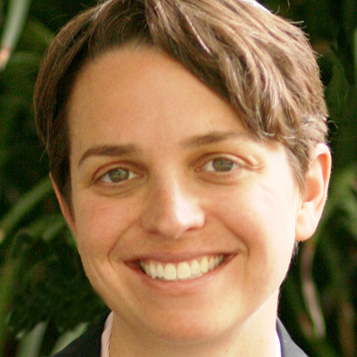
I believe from my experiences of being present in the moments of birth and in the moments of death that there lies a remarkable — and deeply holy — closeness in how we take our first breaths and how we take our last.
In this week’s Torah Portion, Parashat Ha’azinu, we once again are brought into the intimate details of Moses’ life. The Eternal says to him, “You shall die on the mountain that you are about to ascend, and shall be gathered to your kin” (Deuteronomy 32:50). With these words, God lays out for Moses what the final instants of his life will be like: They will be Moses’ alone, absent the people who accompanied every step of his life for decades. In the time between learning his fate and climbing a mountain in solitude for the last time, Moses is given the opportunity to prepare and to say goodbye to his life and to his community.
In his book, “A Year to Live: How to Live This Year as If It Were Your Last” Stephen Levine writes, “It’s never too late to complete our birth.”
Here is what we know about Moses’ birth: “A Levite woman … conceived and bore a son; and when she saw how beautiful he was, she hid him for three months. When she could hide him no longer, she got a wicker basket for him. … She put the child into it and placed it among the reeds by the bank of the Nile” (Exodus 2:1-3).
Moses came into the world clouded in secrecy and spent his first months in a quiet cocoon of isolation. It was only by keeping him in solitude that his family could ensure his safety. I am sure that those first months held a special sweetness for baby Moses and his mother, making it hard to imagine the shock for both when he was cast out alone into the world in a desperate move to save him.
He was discovered by Pharaoh’s daughter and the rest was history. From that point on, Moses lived a big life, soon to be cast in the role of Pharaoh’s daughter’s son, then as a champion of justice for his people, and finally as the leader of the Israelites. Moses’ life bore little resemblance to his birth.
But, how much of Moses’ end is linked to his beginning?
We read this week’s words of Torah during a sacred time for our people. As we engage in the days between Rosh Hashanah and Yom Kippur, our tradition invites us to contemplate our own potentialities for rebirth, as well as to practice elements of our death. At no other time of the year are we asked to strip ourselves so bare, and to relive and rehearse these bookend experiences of our own existence.
On Rosh Hashanah, each of us enters into a spiritual space that is ripe with infinite possibilities. For, it is on this day each year that we are invited not only to contemplate the birth of the world, but also to reflect on the possibilities for our own remaking.
As we move toward Yom Kippur, we are asked to call to mind Levine’s teaching: It is never too late to complete our birth. On Yom Kippur, we fast, abstain from worldly pleasures, and dress in white. These actions are meant to serve as a dress rehearsal for our death. The cycle of these holy days provides the opportunity to live out on a yearly cycle the ultimate rhythm of our lives — from birth to death, from rebirth to rebirth.
At the end of their lives, many people re-enter a stage of dependency similar to the one in which they began their lives. In our final moments, like our first, our world often shrinks — moving from the vivid, bold acts of living, into the small and very human acts of breathing and not. And during the Ten Days of Awe each year, we are invited to live out dimensions of this arc of life as a spiritual act.
This week, we witness Moses’ first steps toward encountering his final moments, for the completion of his birth. He was born in secrecy and he will die in secrecy — with no one knowing where his grave will be placed. He was born filled with wild potential and he will die with undimmed eyes and unabated vigor. He was born alone and will die alone.
Moses completed his birth in his death. And so, we too, in synchronized rhythm, are invited to act out birth and death this week. Like Moses, during these Days of Awe, we are invited to walk away from the noise of our lives and into quiet spaces of contemplation. To give up our own senses of control, and focus instead on the ultimate dependency of our lives, which are in the hands of the Eternal. And finally, to allow ourselves to be alone — with our thoughts, our aspirations, our desires for change, and our commitments to growth.
As we near the end of one Torah cycle and ready ourselves to begin reading it once again, so may we also embrace and celebrate our own potentialities for renewal.
RABBI JOCEE HUDSON is an associate rabbi at Temple Israel of Hollywood.





















 More news and opinions than at a Shabbat dinner, right in your inbox.
More news and opinions than at a Shabbat dinner, right in your inbox.